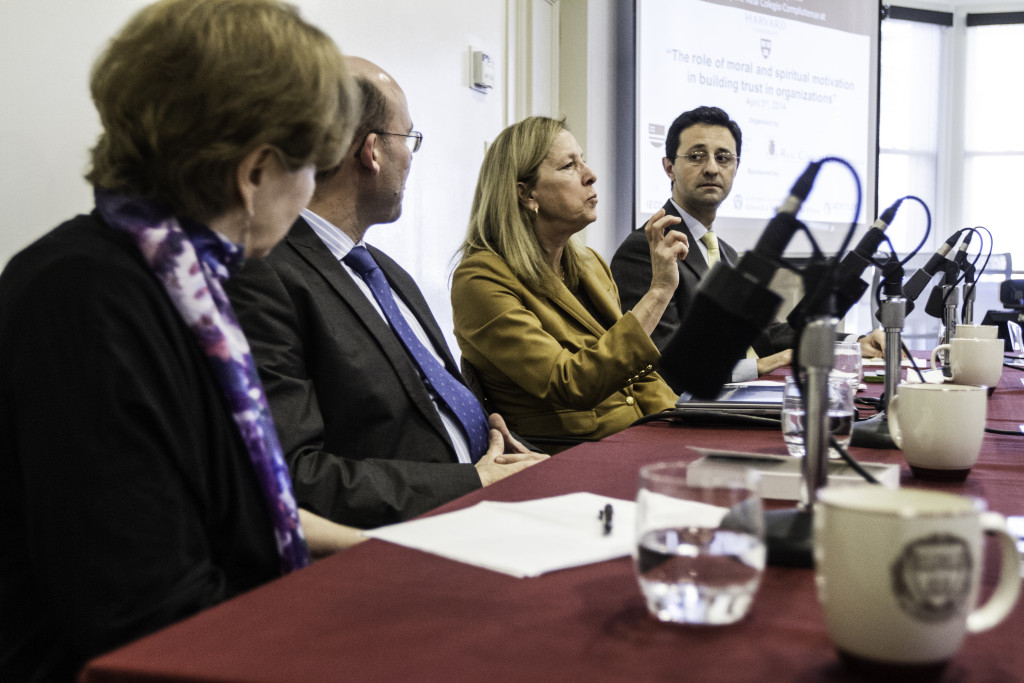The RCC at Harvard University hosted the second IECO-RCC International Colloquium. Attendees included the Spanish consul in Boston.
The Second IECO-RCC International Colloquium addressed the impact of motivation on work and organizational trust. The event was moderated by William English from the Edmond J. Safra Center for Ethics at Harvard University whilst the speakers were Professor Sandra Waddock, from the Carroll School of Management at Boston College; Donna Hicks, from the Weatherhead Center for International Affairs, Harvard University; Tomás Baviera, from the Institute for Ethics in Communication and Organizations (IECO), and Professor Manuel Guillén, from the University of Valencia and Director of the Institute for Ethics in Communication and Organizations (IECO). The colloquium took place on April 3, 2014 at the headquarters of the RCC (Royal Complutense College) on Harvard University’s campus and was attended by around thirty managers and academics from the Boston area.
In his introduction to the colloquium, William English, from Harvard University, stressed the need to review the assumptions of the most widespread theories about motivations in the search for approaches that rise above the overly selfish and materialistic conceptions of human beings.
Professor Guillén, from the University of Valencia, focused the discussion on the analysis of the classical theories of motivation which are commonly presented in business schools and in many universities around the world. In his speech, he proposed an expanded model of motivation which explicitly includes the ethical, spiritual, giving, and benevolence dimension. This idea was further underlined by Tomás Baviera, IECO’s Assistant Director and holder of a PhD from the University of Valencia.
Baviera quoted Miguel Hernández’s famous elegy to his friend Ramón Sijé to illustrate the construction of relationships which seek the good of others as proposed by Aristotle. This approach can also dovetail with organizations, as recently pointed out by Michael Sandel. Baviera stressed the need to move beyond a purely instrumental logic in professional relationships to embrace a logic of giving that can motivate people to behave unselfishly in interpersonal interaction in organizations.
Professor Sandra Waddock, from Boston College, emphasized that business managers need to be able to acquire “practical wisdom”, knowledge that can contribute to the common interest of society by providing goods and services that are not just useful but also good and aesthetic.
In her talk, Professor Donna Hicks, from Harvard University, stressed the point that it is not enough to recognize the dignity of workers to overcome conflicts in organizations. Hicks, the author of a book on human dignity that has been a bestseller in the US, argued that you have to treat each person based on their dignity with all the implications this has for human relationships in professional life.
In the subsequent question and answer session, attendees showed their interest in ethics and its role in shaping more human organizations. The audience consisted of academics from over ten leading universities and directors of well-known Massachusetts companies. The Spanish Consul in Boston, Mr. Julio Núñez Montesinos, also came to the event.


